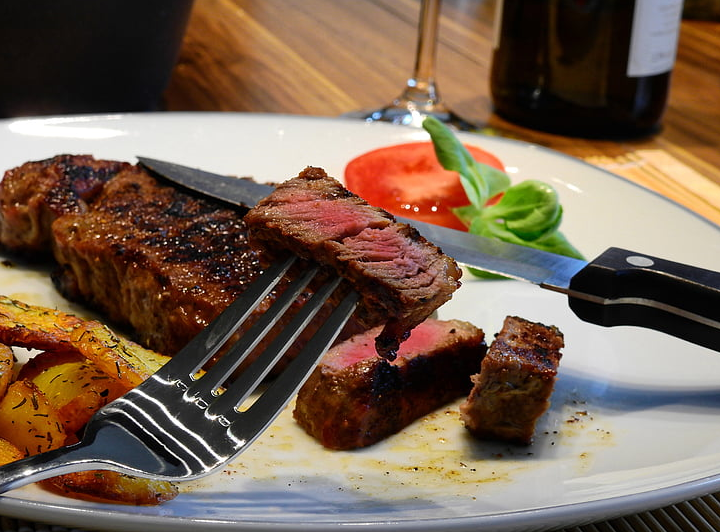My husband and I have been searching for locally sourced beef and chicken in our area ever since we moved to Alabama. From industrial processing plant fires, to chemical compounds sprayed on meat, to food recalls, we recognize that the food supply is compromised in one way or another.
This even shows up in our commercial cereal products, a fact recently highlighted by the “New York Post”:
“Four out of five Americans are being exposed to a little-known chemical found in popular oat-based foods — including Cheerios and Quaker Oats — that is linked to reduced fertility, altered fetal growth and delayed puberty.
The Environmental Working Group published a study in the Journal of Exposure Science & Environmental Epidemiology on Thursday that found a staggering 80% of Americans tested positive for a harmful pesticide called chlormequat.”
Having moved away from a state that shoved synthetic meat and byproducts down the public’s throat at every possible opportunity, it is heartening that the Alabama Senate just voted 32-0 to ban lab grown meat.
Dubbed “Frankenfood,” this method of “meat” production is supposedly better for the environment. It has gained FDA approval, and many nutritionists and chefs are promoting its lower calories, lower-fat properties, and its additive- and antibiotic-free nature.
Many in the government and the food world are treating the arrival of lab grown meat like the second coming. “TIME Magazine” is even excoriating states like ours who are seeking to ban widespread use and distribution of this lab creation.
Nothing is definitive yet, but studies are beginning to show these touted claims may be an oversell. For example, a UC Davis study found that the claims of environmental sustainability are not exactly accurate. In fact, synthetic meat production may leave more of an environmental footprint than agricultural meat production.
“[I]n a preprint, not yet peer-reviewed, researchers at the University of California, Davis, have found that lab-grown or ‘cultivated’ meat’s environmental impact is likely to be ‘orders of magnitude’ higher than retail beef based on current and near-term production methods.”
This is one of the major promotional points of lab-grown meat, so if more studies show that environmental sustainability is a myth, this selling point will go out the window.
Then there is the control of calorie intake and elimination of additives, antibiotics, or potential infection-causing elements. However, according to one nutritionist, the long-term plan for lab meat production is to begin “improving” the product by injecting vitamins and additives into the created specimens. How is this any better than what is occurring with certain chicken and beef processing concerns?
“Grace Derocha, national spokesperson for The Academy of Nutrition and Dietetics, agrees. ‘More research needs to be done, but it could be healthier in the long run,’ she says. ‘The control factor comes into play, meaning the lab-grown meat would be created in a sterile environment versus concentrated animal feeding operations.
‘There are fewer antibiotics and environmental impacts in lab-grown meats. Moreover, the future could have science altering and controlling the amount of fat or reducing cholesterol or even adding in heart-healthier fats instead, such as omega-3 fats, that usually come from fatty fish.’”
While the national government and these New Age companies appear to have long-term food sustainability in mind, what they fail to factor in is the economic impact, particularly on states (and countries) that are major agriculture exporters. Alabama alone has over 1 billion in livestock inventory (chicken, cattle, goat, etc.). If major corporations like Upside Foods and Impossible Foods succeed in flooding the marketplace with these synthetic meat varieties, how will it impact the land, our way of life, or even generational and ancestral knowledge on how best to produce food?
The seemingly clinical and compact answer to the problem of food sustainability may just be a Trojan horse to destroy independence, freedom, and the generational footprint. Documentaries like, “No Farmers, No Foods” allege that this attack on farming and agriculture is not only local, it is a global issue – a deliberate attempt to steal land and gain control of the food supply. Meanwhile, journalists like Gary Taubes and Nina Teicholz have been exposing the fraudulent foundation of the federal requirements of the food pyramid’s (now MyPlate) emphasis on heavy grains and low animal protein for many years. Government and science have aligned for decades to control the food and eating habits of Americans, but the result has been higher rates of obesity and increased disease like diabetes and cancer. So, with this knowledge and past history, trusting either of these institutions on the efficacy and benefit of lab-grown foods is akin to a fool’s bargain.
Alabama is on the right track: cut this idea of lab grown meat off at the pass. Millions of years of successfully sustaining human and animal life should have greater weight than untested lab innovations – particularly when the drivers behind this innovation have a suspicious history and spotty results.
Jennifer Oliver O'Connell, As the Girl Turns, is an investigative journalist, author, opinion analyst, and contributor to 1819 News, Redstate, and other publications. Jennifer writes on Politics and Pop Culture, with occasional detours into Reinvention, Yoga, and Food. You can read more about Jennifer's world at her As the Girl Turns website. You can also follow her on Facebook, Twitter, and Telegram.
The views and opinions expressed here are those of the author and do not necessarily reflect the policy or position of 1819 News. To comment, please send an email with your name and contact information to Commentary@1819news.com.
Don’t miss out! Subscribe to our newsletter and get our top stories every weekday morning.










